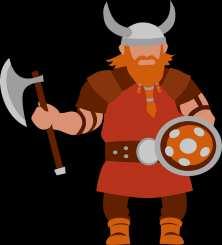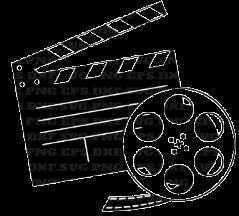
3 minute read
Year 5 Curriculum Map

Summer 1
Mathematics: In mathematics, children will be exploring fractions. They will learn to convert between mixed numbers and improper fractions as well as finding equivalent fractions to be able to add and subtract increasingly complex combinations of fractions. Children will learn to multiply and divide fractions and will convert between fractions, decimals and percentages.
History – Barbaric or civilised: How did the Vikings develop over time? As we learn about the Vikings, we will build on our understanding of civilisation (Egyptians and Romans in year 3, Greeks in year 4 and Maya in year 5). We will make comparisons between the Vikings and other civilisations both at the time and that we have studied. We will learn all about what life was like for the Vikings, as well as their invasions and why some people tried to stop the Vikings. Children will develop chronologically secure knowledge and understanding of this element of history.

Geography – What is the journey of a river? We will build on our learning about mountains and rivers in year 3, looking more in depth at the parts of a river and how land is used around them. We will develop locational knowledge by looking at well-known UK rivers and the regions these flow through, as well as the journey of the River Tyne and what it passes as it flows towards the North Sea. We will look at why it is good to be near the River Tyne, examining what the River Tyne has been used for over the years and how its use has changed. Children will compare places that it passes through now to what they were like in the past.
Science – Forces then Space
Children will explore how mechanisms, including levers, pulleys and gears, allow a smaller force to have a greater effect.
Building on their knowledge of forces, children will describe the movement of Earth and other planets relative to the sun in the solar system. They will use the idea of the Earth9s rotation to explain night and day and the apparent movement of the sun across the sky.
Art – 3D art using clay
Children will explore materials and techniques used to create 3D art. Pupils will develop visual-spatial skills as they analyse the shape and form of 3D objects. They will develop the skills required to manipulate clay, including joining clay by a score and slip method. Children will experiment by creating braids, twists and small discs.
Design Technology – Textiles
Children will investigate the durability of different materials before repurposing a pair of jeans to make a bag. Children will also use beeswax to make a reusable sandwich wrap.
PSHE: Living in the wider world.
Children will explore how they can be an active member of their local community. They debate how taxpayer9s money should be spent to best benefit the community that they live in.
ICT/Computing:
This half term, children will revisit their learning on Copyright and Ownership from Autumn 1. Children will create their own video project using iMovie on an iPad and our green screen, learning to airdrop between iPads, import movies, rearrange the order of their clips, crop their clips and create smooth transitions.


PE – Net and wall games – tennis and badminton:
In PE this term, children will develop a variety of shots in isolation and in game including forehand, backhand and overhead. They will recognise how reaction time can impact on play and umpire a tennis and badminton game.
Music: Children will continue to receive specialist music tuition and widen their musical vocabulary. They also will follow simple musical notation to play tunes on the xylophone.
RE –What does it mean to belong to a Muslim community?
Building on their learning of the Qur9an, and the life and teachings of Mohammad, children will explore how religious beliefs can be expressed in a variety of ways including art and architecture.
Times Tables:
French:
In French, children will build on their knowledge of numbers. They will be able to use ordinal numbers (first, second, third) and further explore the districts of France (arrondissement).
They will also revisit and continue to build upon their ability to tell the time in French and apply adverbs to phrases.
Children should all be able to quickly recall all times tables up to 12 x 12 = 144 now. It is essential for children to be accurate and quick with tables so that they can confidently access the full maths curriculum. We are now having weekly times tables tests to check children9s recall so keep practising regularly at home!
Reading and Spellings at home:
To reach their full potential, children must be reading aloud with an adult at home every night. Reading develops skills, which are invaluable across the whole curriculum, this extra practise can have a significant impact on the amount of progress made, and the speed in which it is made. When you are reading or practising spellings with your child, please remember to sign in their reading record for a chance to win fantastic prizes!
Knowledge organisers which outline the key content covered in History, Science and R.E. will be uploaded onto Seesaw. Please take a look and quiz your child on their newly acquired knowledge!
Homework: In Year 5, children will receive one piece of homework each week relating to work we have done that week. Homework will be sent out on Friday afternoons on Seesaw and will be required back in school by the following Friday! Children can also take a paper copy if they would prefer. Please encourage and support your child with their homework by making sure it is completed as this supports their learning in school.


